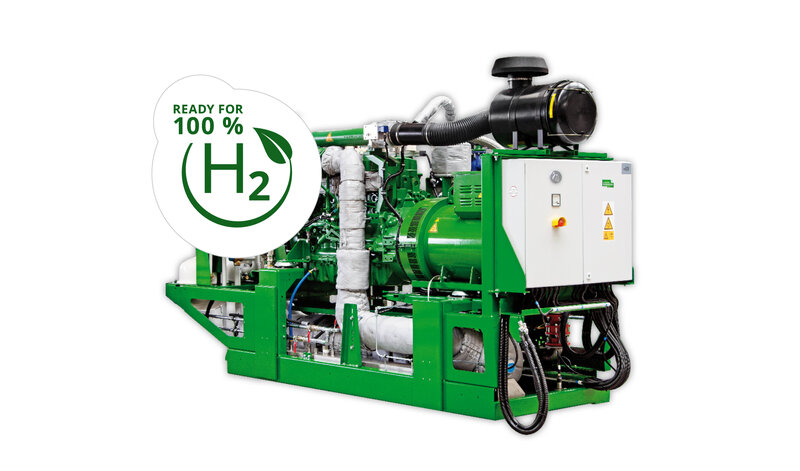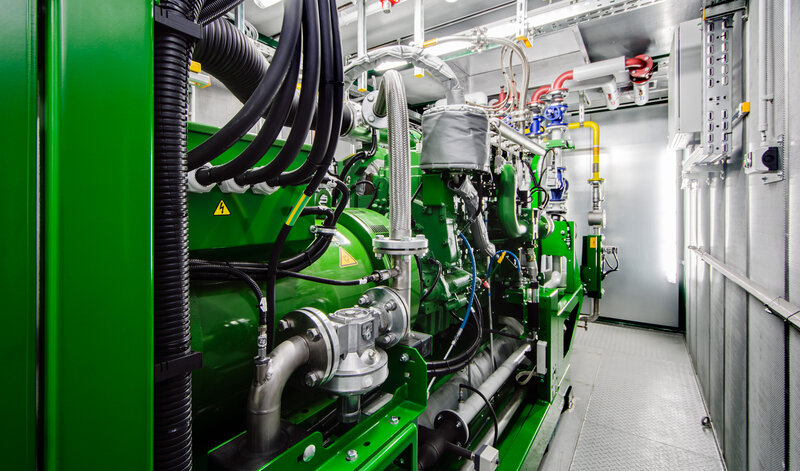
100% Hydrogen Combined Heat and Power
Zero Carbon; It's easier than you think
It is widely known that hydrogen as a fuel source provides one of the most viable pathways to a net zero world. It is possible to ensure the energy supplied is net zero by changing the gas input to green hydrogen. 2G Energy has been installing and operating 100% hydrogen CHPs worldwide since 2012, providing large proportions of an organisation's electricity and heat, while helping them reach their net zero goals.
Innovation in production
With the agenitor by 2G, you are not only equipped for a net zero world but actively involved in shaping it. Today, the tried and tested agenitor already sets efficiency benchmarks for the operation on natural gas, biogas and gas mixtures. Thanks to the optimised gas engine, the fuel costs are significantly lower than with comparable models. And even operating on pure hydrogen no concessions need to be made. Because as a H2-pioneer, 2G is very familiar with the properties of hydrogen. The result: no efficiency is lost, but 100% zero-carbon is achieved.


How does it work?
Our 2G CHP systems driven by pure hydrogen (produced on-site through electrolysis) can generate your own heat and power, which is highly efficient and carbon-free.
Ensuring that you are not just equipped for the energy revolution but also actively involved in shaping it.

Advantages of the Hydrogen CHP?
100% zero carbon
Proven engine technology
Utilisation of gas mixtures
CHP of the Year 2019
Award-winning H2-technology in action
The hydrogen-fueled combined heat and power system in Haßfurt was crowned "CHP of the Year 2019". Among eleven submissions, the system was unanimously elected by a jury composed of experts from the Federal Cogeneration Association (BKWK e.V.) and the specialized journal 'Energy & Management' (E&M).


Buy your CHP today, have it converted to H2 tomorrow
2G standard engines can run on 40% hydrogen now and be upgraded to 100% hydrogen whenever you are ready.
CHP are subject to structured maintenance and service schedules, over the course of which the essential components should always be replaced at the same time. As part of the "general overhaul" (M5 maintenance), for example, which is due after 32,000 hours, the pistons get replaced among other things. Since different pistons are used for hydrogen mode than for natural gas or biogas mode, it is advisable to replace them as part of M5 Maintenance.


